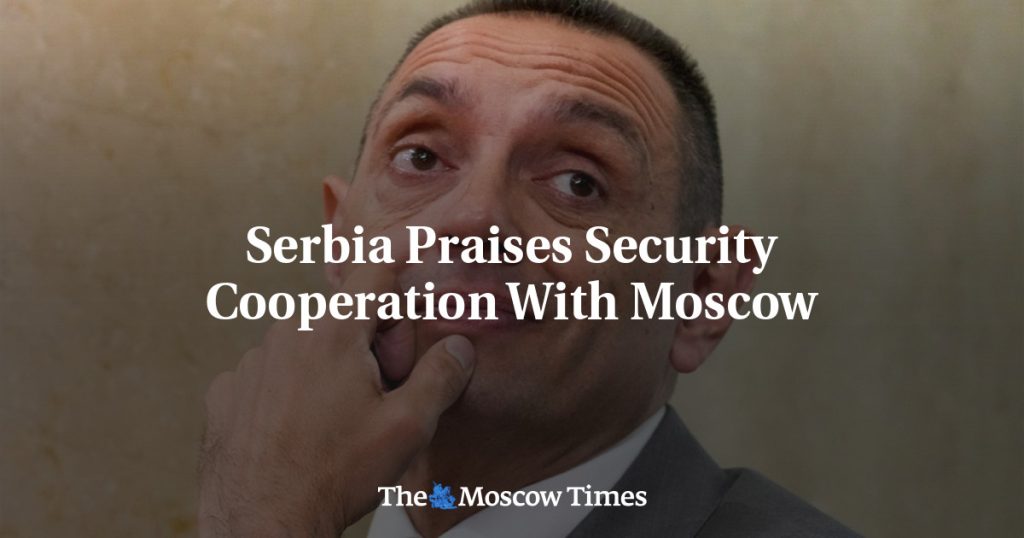Serbian Deputy Prime Minister Aleksandar Vulin recently met with Russian Interior Minister Vladimir Kolokoltsev in Moscow to discuss security cooperation between the two countries. Vulin praised the ongoing mutual support on the international stage, highlighting the importance of continuing collaboration in the fight against transnational crime. He emphasized that efforts to limit Russia’s participation in international police organizations, such as Interpol, could hinder the effectiveness of combating criminal activities.
Despite facing sanctions from the United States over alleged corruption during his tenure as the head of Serbian intelligence services, Vulin has remained a strong advocate for the “Serbian world,” which aims to unite Serbs living in different countries. This concept has drawn criticism for its resemblance to Moscow’s idea of a “Russian world.” Serbia, a country waiting for European Union membership since 2012, faces challenges due to its heavy dependence on Russian gas. While Belgrade condemned Russia’s invasion of Ukraine at the United Nations, it has refrained from imposing sanctions on Moscow, maintaining a delicate balance in its foreign policy.
The United States and the European Union have pressured Serbia to take action against Vulin to avoid sanctions being imposed on the country. Despite facing international scrutiny, Vulin was appointed as deputy prime minister in May, signaling Serbia’s commitment to its strategic relationship with Russia. The cooperation between Belgrade and Moscow extends beyond security matters and includes economic ties, particularly in the energy sector. Serbia’s refusal to sanction Russia has raised concerns among Western allies, as it challenges the unity of the international community in responding to global conflicts.
Vulin’s meeting with Kolokoltsev in Moscow underscored the strategic importance of the relationship between Serbia and Russia, particularly in the context of evolving security threats in the region. The two countries share a long history of cooperation and mutual support, which has solidified their partnership in various areas, including defense and intelligence sharing. Despite external pressures and challenges, Serbia continues to prioritize its relationship with Russia, emphasizing the significance of their alliance in maintaining regional stability and addressing common security concerns.
As Serbia navigates its position in the complex geopolitical landscape of Eastern Europe, its relationship with Russia remains a central tenet of its foreign policy. The close ties between Belgrade and Moscow go beyond political rhetoric and symbolic gestures, encompassing practical collaborations in security, energy, and economic domains. Vulin’s advocacy for the “Serbian world” reflects a broader desire to strengthen cultural and historical bonds among Serbian communities worldwide, aligning with the narrative promoted by the Kremlin. While facing external criticism and pressure, Serbia continues to maneuver diplomatically to balance its partnerships with both Western allies and Russia.
The ongoing support and partnership between Serbia and Russia underscore the complexities of navigating international relationships in a rapidly changing world. As Vulin reaffirms the importance of collaborating with Moscow on security issues, the implications of this alignment on Serbia’s broader foreign policy objectives come under scrutiny. The delicate balance between maintaining strategic ties with Russia and seeking European integration poses challenges for Serbia, requiring careful diplomacy and nuanced decision-making to safeguard its national interests while navigating the expectations of both Western and Eastern powers.


